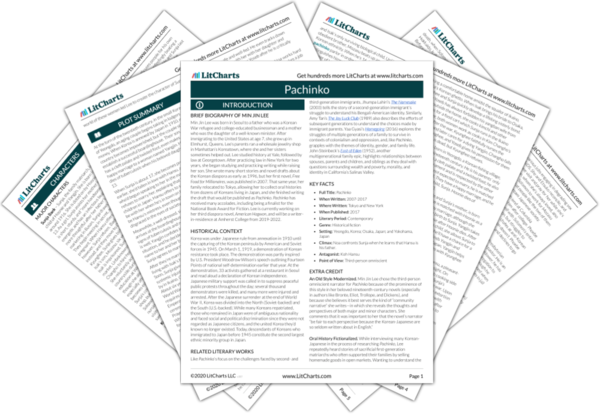AI ToolsNew
Tools to make learning and teaching easier
|
Previous
Book 2, Chapter 3
|
Pachinko: Book 2, Chapter 4 Summary & Analysis |
Next
Book 2, Chapter 5
|


Upgrade to unlock the analysis and theme tracking for all of PachinkoPachinko!
Get LitCharts A+